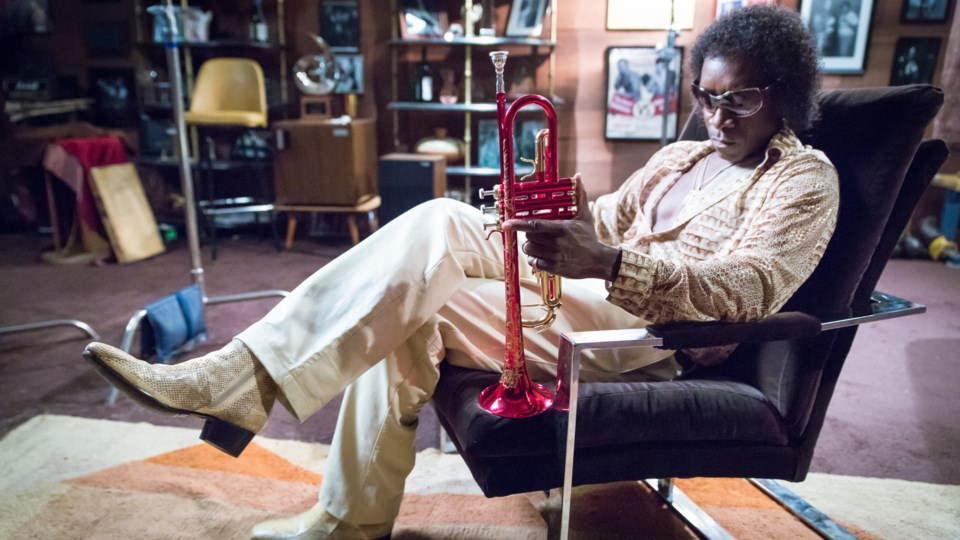Jazz impresario Miles Davis was among the most influential jazz artists ever, inspiring no small measure of reverence and revulsion along the way.
He beat his wives, a fact often dismissed as a mainstay of the times and a byproduct of artistic temperament. He habitually walked offstage when he wasn’t playing (a habit Davis himself chronicles in his song “So What”). Often when he did play, he turned his back on the audience.
But his contribution to “social music” — Davis hated the term “jazz” — is singular, his style ever-evolving from “birth of cool,” to hard bop, modal jazz and fusion. He influenced John Coltrane, Chick Corea, Wayne Shorter, Herbie Hancock and Keith Jarrett, among countless others.
It would be a disservice to his untraditional artistry, then, to create a traditional artist’s rise-and-fall biopic. Miles Ahead instead takes place during the five “lost” years of Davis’s life in the late ’70s, when Davis dropped out of music for a while. It plays with facts and time, draws characters in and then loses them to the periphery and, at times, feels as free-form as some of Davis’s work. But overall it manages to get the essence of the man just right.
Don Cheadle is the one-man show who brings Miles Ahead to life, after a decade of struggle. He makes his directorial debut, co-wrote the screenplay (with Steven Baigelman), produces and stars. And yes, that’s him playing the trumpet. He fully inhabits Davis, at his worst and at his most inspired.
Cheadle has talked openly about the need to cast a white actor in order to get the film financed, thus the (fictional) relationship between Davis and a Rolling Stone reporter (Ewan McGregor) looking to score an interview at a time when his subject was holed up in his home, drug-ridden and bedeviled by regrets from the past. Figuring prominently in those flashbacks are first wife Frances Taylor (Emayatzy Corinealdi), his muse and spouse for a decade, despite Davis’s violence and infidelity.
Instead the reporter Dave Braden finds himself all in, helping Davis score drugs and steal back a session tape from a wily promoter, a narrative contrivance that may rankle purists.
Scenes from Davis’s past with Frances are romantic, coherent; the present is dominated by chaos and pain. Gradually the two merge as Davis is forced to surrender the truth about their relationship in order to get over his creative block and personal demons.
If the free-form nature of Miles Davis’s music is a mystery to you, the impressionistic nature of the film may also be confounding. “If you’re going to tell a story, man, come with some attitude.” Cheadle the director takes his cues from some of Davis’s music, employing abrupt edits and herky-jerky camerawork, suggesting the pain of a man plagued by hip problems and decades of heroin and cocaine use, and bursts of manic genius.
Sometimes it works and sometimes it doesn’t. But always on note is Cheadle’s commitment to his subject, and his performance is electric, a must-see.
jcrawfordfilm@gmail.com



